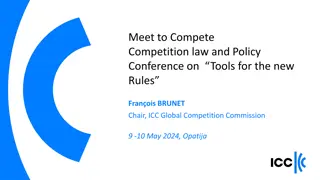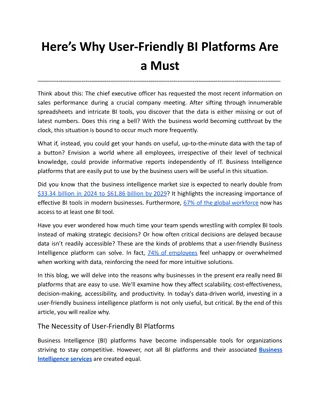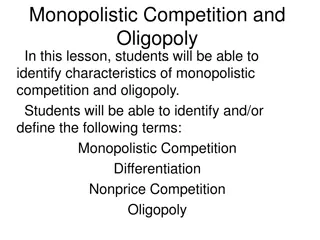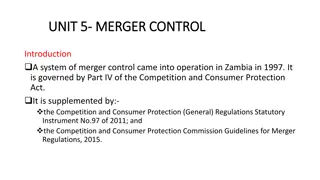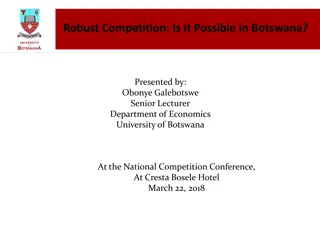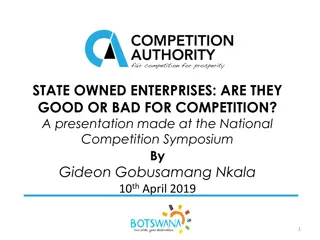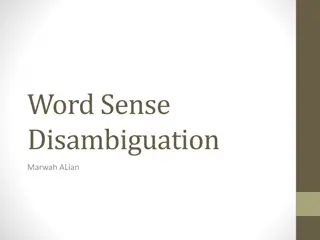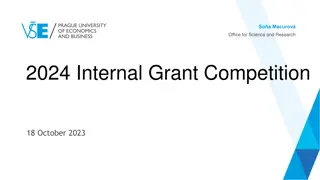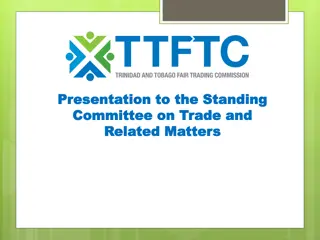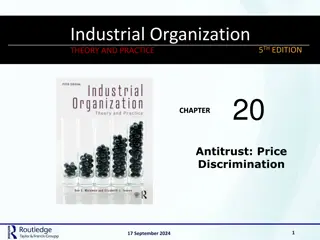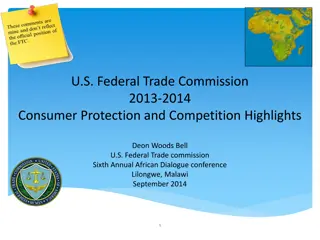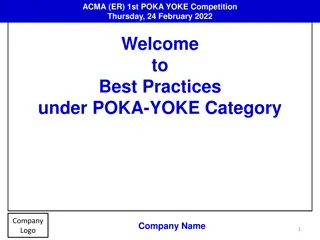Analysis of EU and US Approaches to Regulating Competition in Online Platforms
This webinar delves into the Digital Markets Act (DMA) and its implications for competition regulation in online platforms in both the EU and US. Prof. Nicolas Petit discusses the key principles and provisions of the DMA, shedding light on its impact on digital markets. The DMA targets core platform services and gatekeepers, imposing specific obligations to ensure fair competition and prevent anti-competitive practices. With a focus on enforcement and creating safe spaces for competition, the DMA represents a significant shift in regulatory approaches to digital markets.
Uploaded on Jul 31, 2024 | 0 Views
Download Presentation

Please find below an Image/Link to download the presentation.
The content on the website is provided AS IS for your information and personal use only. It may not be sold, licensed, or shared on other websites without obtaining consent from the author. Download presentation by click this link. If you encounter any issues during the download, it is possible that the publisher has removed the file from their server.
E N D
Presentation Transcript
@CompetitionProf The Digital Markets Act (DMA) Transatlantic Webinar: EU and US approaches to regulating competition in online platforms Prof. Nicolas Petit 28 Nov, 2022
Say cheese! On track to the good days Seriously? 5 years for an antitrust case? I told her so 2
Competition Enforcement as a Cost of Doing Business Policy awakening Vestager 2018, [t]he principles [the competition rules] set out are valid for every market, for the ones we know today and the ones we ll see in the future. And that's why dealing with digital markets isn't really about new rules. EC proposal, Dec 2020 Lighter, faster, stronger Per se law: no market definition, market power investigation, no balancing Evidence light: focus on firm, not market or industry, proxies or qualitative assessment Strict deadlines: 45 days for designation, 6 months to comply w/ obligation in art 5, 6 and 7 Status declaration regime: // Israeli law 4
The DMA: a Competition Hand in a Regulatory Glove 5
Targeted Legislation Core Platform Services (10) Gatekeepers Undertaking of a certain size, art (3(2) a)) Turnover (EU) > 7,5 Bi or Market cap > 75 Bi CPS in 3 Member States And which in at least 1 CPS has a large audience, art (3(2) b)) End users > 45 Mil MAU in the EU Business users > 10 000 YAU in the EU For > 3 years (3(2) c) of Online intermediation services, online search engines, online social networking services, video-sharing platform services, number-independent interpersonal communication services, operating systems, cloud computing services, online advertising services, web browsers and virtual assistants 6
DMAs Safe Competition Spaces (1, 2 & 3) Source: Moreno & Petit, 2022 7
19 Obligations Apply wrg to each CPS listed in designation decision art 5(1) Limited clustering Self executing v further specifiable obligations Update by delegated act + system to avoid circumvention provided for at Art 13 No tie btw gatekeeper affected CPSs, art 5(8) Established legal practice No combination of personal data w/o specific consent, art 5(2) DE ongoing Facebook Case No self preferencing in ranking, indexing, and crawling, art 6(5) Recent EU Google Shopping case 8
Personal views on DMA Focus on indirect limitations to monopoly rents in tipped markets Sector-specific competition law Excess restrictions on big tech s exit from monopolized markets? Awareness needed towards risk of over-regulation of incipient tipping 9
Open Questions Practice => What counts as a business user for a virtual assistant (eg, Siri) or as an end user for a cloud service (AWS)? Policy => What indicators to determine whether the DMA has been a success ? Law => What is/are the concrete objectives that the DMA tries to achieve? 10





